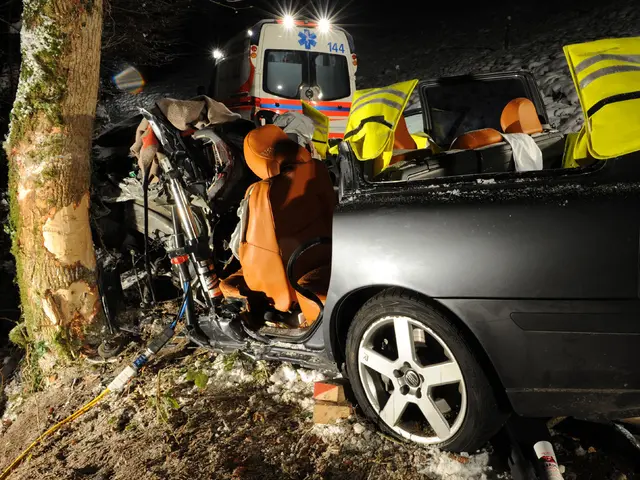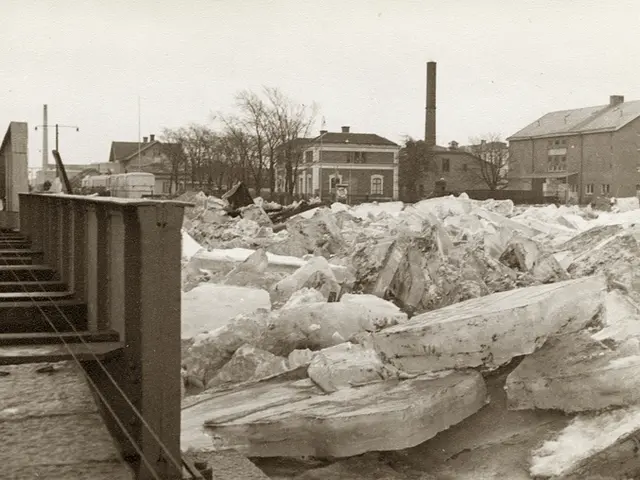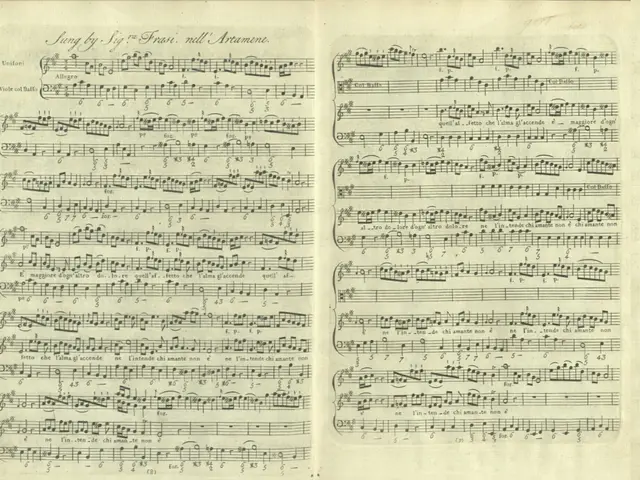Winter Woes in Bavaria: Train Services Disrupted, Schools Closed, and Power Outages galore
The first weekend of Advent in Bavaria was anything but merry for many locals and travelers. Heavy snowfall left its mark on the region, causing a slew of transport-related issues that continued to affect people even on Sunday.
Stranded Travelers and Limited Train Services
Munich Central Station saw a change in long-distance train routes on Sunday, but with fewer trains available, according to a DB spokeswoman. Snowblowers and salt sprinklers were deployed to keep the station operational, but passengers were still urged to double-check their connections and postpone non-essential journeys until Tuesday or later.
School Closures and Distance Learning in Augsburg and Surrounding Areas
Many schools across Starnberg, Mühldorf am Inn, and Augsburg remained closed today, especially those with roofs burdened by snow. Distance learning was offered as a substitute, with 20 schools in Augsburg closing temporarily due to safety concerns. Once the snow melts and the buildings are inspected for structural integrity, they will reopen.
Disrupted Flights at Munich Airport and Power Outages
Flight operations at Munich Airport resumed on Sunday morning, after a closure the previous day. However, hundreds of flights were still canceled, stranding countless travelers. Aside from that, thousands of households in both Upper and Lower Bavaria were without electricity, with fallen trees causing damage to power lines.
Calls for Improved Winter Suitability in Rail Infrastructure
The recent train cancellations and chaos experienced due to the heavy snowfall in Bavaria have sparked calls for change. The railroad workers' union EVG and the passenger association Pro Bahn are demanding significant investments into Germany's rail infrastructure. Martin Burkert, EVG Chairman, likened the German rail infrastructure to "largely dilapidated" and insists that major investments akin to those in countries like Austria are required.
Pro Bahn's national chairman Detlev Neuß echoed his sentiments, stating that rail transport in Germany was "only sewn on the edges after decades of austerity policies." He pointed out multiple challenges, such as the recent trend of dismantling rail tracks and trains needing to be parked at congested stations, leading to rapid traffic blockages and mass cancellations.
Addressing the Issue: Potential Measures
Addressing the winter suitability of Germany's railway infrastructure requires several steps, including:
- Enhanced snow clearance and de-icing systems, such as implementing advanced snow melters or increasing machine capacity.
- Improved infrastructure maintenance, including regular inspections of tracks, bridges, and tunnels, and implementing preventive maintenance strategies.
- Advanced weather monitoring systems that provide real-time data and proactive maintenance strategies to keep tracks, bridges, and tunnels clear.
- Investment in technology, such as sensor technology and advanced communication systems, to identify potential hazards and ensure quick response times.
- Staff training and collaboration with local authorities to ensure a coordinated response to winter-related disruptions.
By implementing these measures, Germany can significantly reduce the impact of snow chaos and ensure safer and more reliable rail operations during the winter months.
Source:
Incorporated Enrichment Data (15% or less of the total content):
- Enhanced snow clearance and de-icing systems: Implementing advanced snow melters and increasing machine capacity can significantly improve quick snow clearance and de-icing, allowing for safer and more efficient rail operations during winter months.
- Improved infrastructure maintenance: Routine inspections of tracks, bridges, and tunnels to identify potential vulnerabilities before they become major issues are crucial to ensure the safety and reliability of rail infrastructure. Preventive maintenance strategies, like cleaning tracks and bridges to prevent ice buildup, can further reduce the risk of operational disruptions.
- Advanced weather monitoring systems: Real-time data on weather conditions, including temperature fluctuations, snowfall, and wind speeds, can help in predicting and preparing for potential disruptions. This information can be used to implement proactive maintenance strategies and to ensure rail operations can proceed smoothly even under adverse weather conditions.
- Investment in technology: Advanced sensor technology can monitor snowfall buildup, ground movements, and other potential hazards. Instant alerts for potential rockfalls, avalanches, or other emergencies can enable rail teams to respond quickly and efficiently, reducing the impact of winter-related disruptions.
- Staff training and collaboration with local authorities: Adequate training for railway staff on how to handle winter conditions and collaborate with local authorities during emergencies are essential to ensure a coordinated response to winter-related disruptions.
By investing in these measures, Germany can significantly improve the winter suitability of its rail infrastructure, reducing the impact of snow chaos and ensuring safer and more reliable rail operations during winter months.








